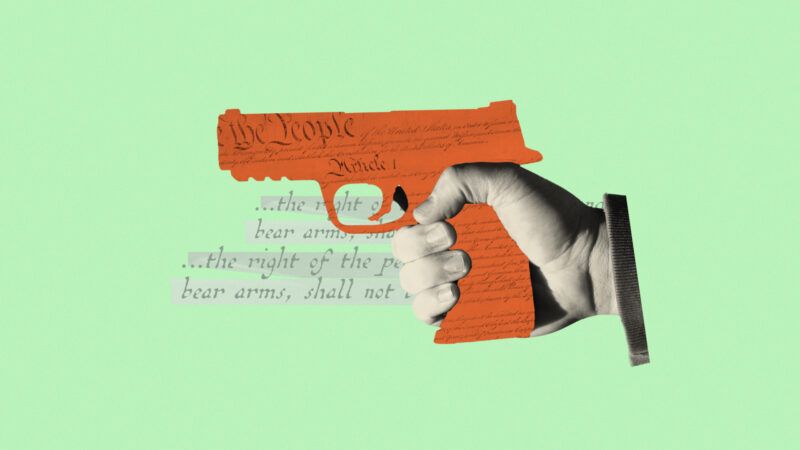The New York Times Is Surprised To Find Public Defenders Championing the Second Amendment
Yet the civil rights movement has long had a gun rights component.

A group of public defense lawyer organizations recently joined forces with Second Amendment advocates to urge the U.S. Supreme Court to invalidate a New York gun control scheme. Now that the scheme has been successfully overturned in New York State Rifle & Pistol Association v. Bruen, which held that the Second Amendment includes the right "to carry a handgun for self-defense outside the home," public defenders have begun citing the Court's ruling to protect the rights of their clients.
This state of affairs has left some New York Times journalists scratching their heads in surprise. As a recent Times headline put it: "Unlikely Fans of Supreme Court Ruling on Guns: Public Defenders." The accompanying article describes the Black Attorneys of Legal Aid, the Bronx Defenders, and other groups as "unexpected" allies of the gun rights movement.
But the alliance seems less "unexpected" when you remember that gun control has a racially disparate impact. As the public defender groups told the Supreme Court in an amicus brief, "New York enacted its firearm licensing requirements to criminalize gun ownership by racial and ethnic minorities. That remains the effect of its enforcement by police and prosecutors today." In other words, Bruen was a win for both gun rights and criminal justice reform.
Likewise, the alliance seems less "unlikely" when you remember that the American civil rights movement has long had a gun rights component. This dates back as far as the abolitionists, such as Frederick Douglass, who declared in 1854 that "the True Remedy for the Fugitive Slave Bill is a good revolver, a steady hand, and a determination to shoot down any man attempting to kidnap."
Douglass continued to preach the virtues of armed self-defense throughout the rest of his life. In 1893, as the noble aims of Reconstruction were giving way to the horrors of the rising Jim Crow regime, Douglass argued that "the liberties of the American people were dependent upon the ballot-box, the jury-box, and the cartridge box." Without all three securely in place, he maintained, "no class of people could live and flourish in this country."
Leading civil rights activists carried on Douglass' position in the 20th century. "I'm alive today because of the Second Amendment and the natural right to keep and bear arms," declared John R. Salter Jr., one of the organizers of the famous sit-ins against segregated lunch counters in Jackson, Mississippi. "Like a martyred friend of mine, NAACP staffer Medgar W. Evers, I, too, was on many Klan death lists and I, too, traveled armed: a .38 special Smith and Wesson revolver and a 44/40 Winchester carbine," Salter said. "The knowledge that I had these weapons and was willing to use them kept enemies at bay."


Show Comments (52)